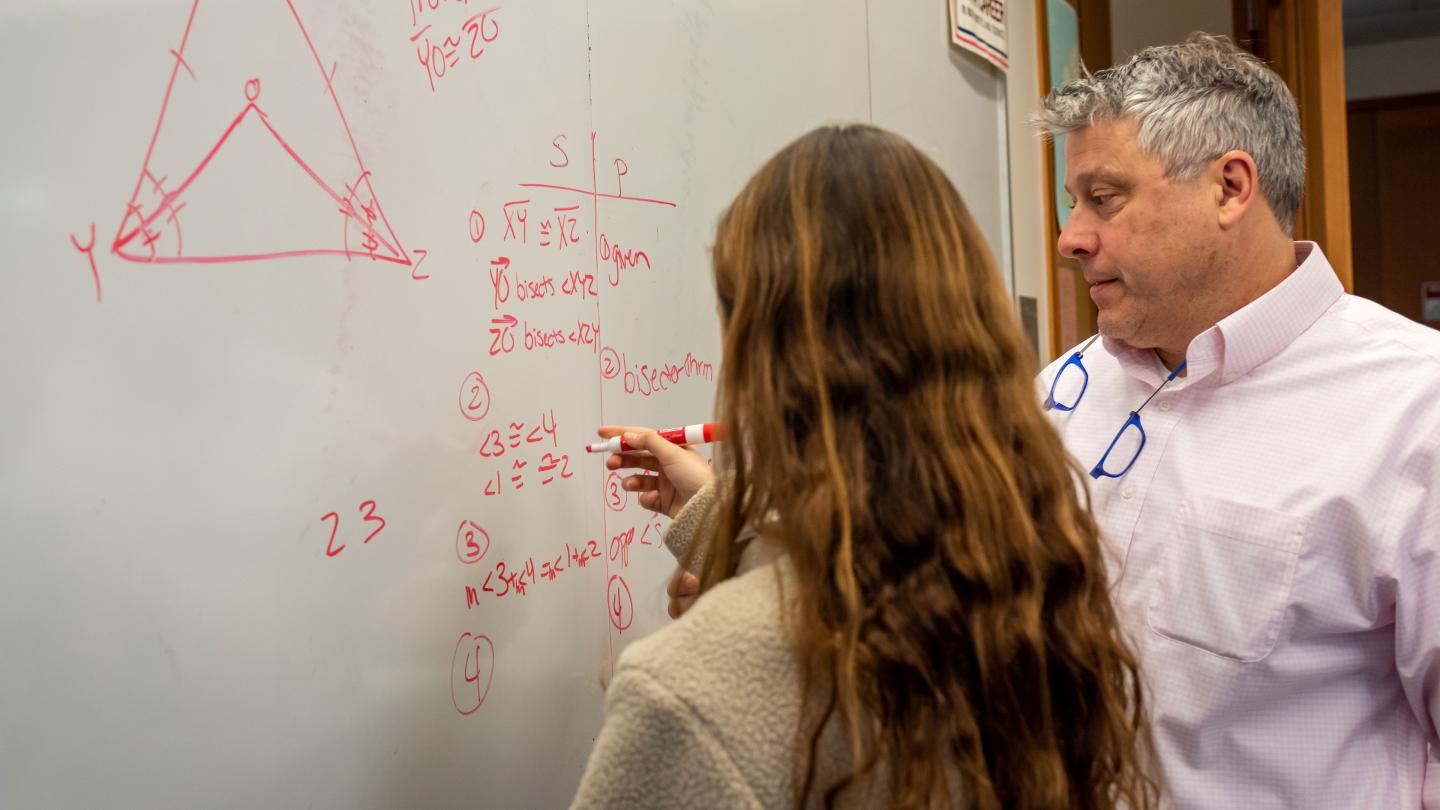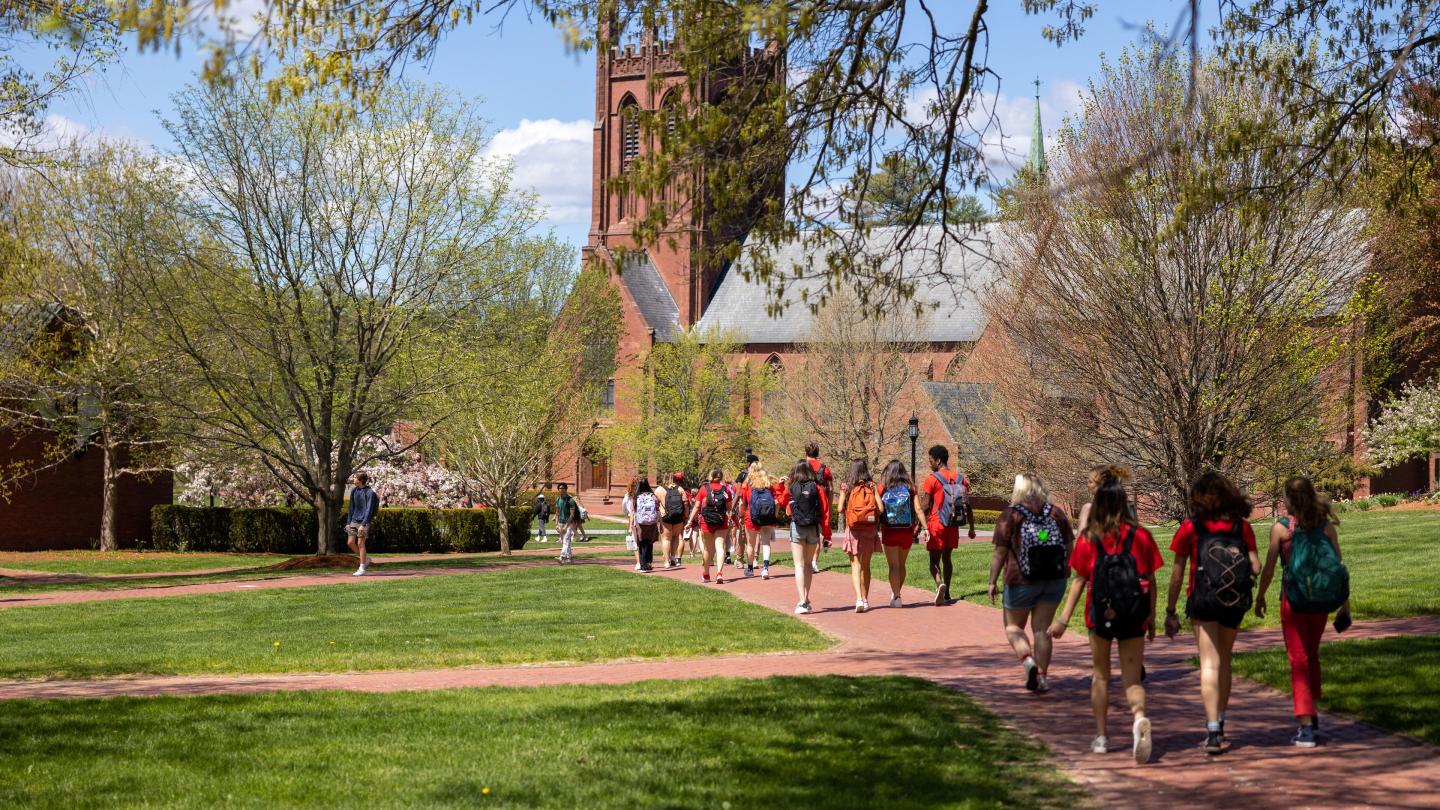Ms. Dalal teaches mathematics in the Lindsay Math and Science Building. Hear her perspective on teaching at St. Paul’s School.


The SPS mathematics faculty encourages each student to achieve a working knowledge of and competency in mathematical concepts and related problem-solving strategies. We encourage students to value and develop mathematical habits of mind and to appreciate the role mathematics plays in the world. Teachers promote and maintain classroom environments that encourage student curiosity and responsibility for their own learning.
Students utilize technology in investigation, discovery, analysis, modeling, conjecture and prediction. We use graphing calculators and computer technologies throughout the curriculum to enhance the learning process. The use of real-world applications illustrates and reinforces mathematical ideas; at the same time, mathematics itself promotes understanding of real-world phenomena.
In addition, students may engage in mathematically oriented extracurricular activities, such as prize exams, both local and national competitions, the School’s Mathematics Society, and peer tutoring.
Prerequisite: Algebra 2
In this course we will explore the intriguing history, ideas and applications of chaos theory. We will read from James Gleick’s “Chaos” and Ian Stewart’s “Does God Play Dice? The New Mathematics of Chaos” and learn about mathematicians John Conway, Edward Lorenz, Robert May, Benoit Mandelbrot and others. To help us to connect with the idea of “sensitive dependence on initial condition,” we will explore cellular automata, read a Dr. Seuss story, watch (Lorenzian) water wheels and observe iterative behavior in nonlinear systems. We will study the logistic map in order to visualize an orderly system turning chaotic and then look at strange attractors in order to find order in chaos. We will explore and analyze the hidden wonders of the Mandelbrot Set; this fractal icon will serve as an artistic masterpiece exemplifying chaotic behavior. Students will leave the course understanding the limitations of using mathematical laws to predict orderly behavior.
Prerequisite: Algebra 2
To expand and explore new problem-solving skills, every class will be filled with a variety of group and solo activities to engage students. Much of the focus of the course will be on Japanese-style logic puzzles such as KenKen and Nurikabe. Students will learn to solve such puzzles as well as create their own. By the end of the course, students will have learned over 20: different types of logic puzzles, each of which will help them develop different aspects of their critical thinking skills. The course will culminate with a presentation, as each student will research a different type of logic puzzle that they will master and teach to the class.
Prerequisite: Geometry and two years of algebra
This course leverages concepts learned in Algebra 2 and extends students’ prior knowledge of algebraic and geometric methods, skills and concepts in preparation for the study of calculus. Care is given to identify and remedy areas of past difficulty for students. Topics include trigonometry, sequences and series, counting and probability, and exponential and logarithmic functions. Graphing technology is used throughout the course to enhance student understanding of mathematical concepts. Real-world applications illustrate and reinforce mathematical ideas.
Prerequisite: Precalculus, Foundations in Precalculus or permission of the department head.
Statistics is the science and art of learning from data to understand our uncertain world. We find statistics everywhere in daily life, from climate change and presidential polls to sports and the development of new medicines. In this yearlong course, students are exposed to four broad conceptual themes: Exploring Data (describing patterns and departures from patterns), Sampling and Experimentation (planning and conducting a study), Anticipating Patterns (exploring random phenomena using probability and simulation), and Statistical Inference (estimating population parameters and testing hypotheses). Students participate in several projects. Students also will use data analysis software to model statistical problems.
Ms. Dalal teaches mathematics in the Lindsay Math and Science Building. Hear her perspective on teaching at St. Paul’s School.

See a sample of math classes you can take.
Deadline is Jan. 15. Apply today!